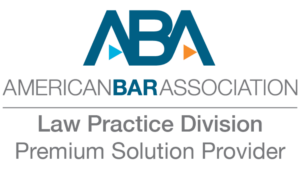MQL vs SQL: Differences and Strategies
Needless to say, lead generation is an essential part of client acquisition — but not all leads are the same. You may encounter leads at different stages of the funnel, and therefore, need to treat them appropriately. Understanding how leads move throughout the prospecting, qualifying, and conversion life cycles begins with understanding two main types of leads — MQLs and SQLs.
What Is a Marketing Qualified Lead?
Short for marketing qualified lead, an MQL is a lead that has expressed interest in your law firm and is more likely to become a client than most other leads. An MQL, for example, would be more qualified than a visitor who’s casually exploring your site and doing some initial research.
They may have downloaded an e-book or whitepaper, or they may have viewed your sales page several times within the last week. As a result, they’re likely receptive to marketing outreach like email, but they’re not yet sales-ready. Therefore, they warrant additional contact, but they’re not at the point where they’re willing to commit right away.
When it comes to the sales funnel, an MQL is located toward the middle. They’ve shown some level of interest and have engaged with your brand more than an average lead who’s just entered the top of the sales funnel, but they still need some convincing before they’re ready to move lower.
The lead quality of an MQL is better than a first-time visitor who’s just checking out your website. Understanding the position of an MQL is important because it dictates how you approach these leads with your outreach. As the name implies, a marketing qualified lead means a lead is qualified to be contacted by your marketing team but still needs to be nurtured before they’re ready to commit.
What Is a Sales Qualified Lead?
An SQL is a sales qualified lead and is usually found further down in the sales funnel than an MQL. They’ve expressed a clear intent to commit and have met the right criteria to be qualified as a potential client. This type of lead “has progressed past the engagement stage, has been thoroughly analyzed by both marketing and sales, and has been deemed ready for the next stage in the sales process — a direct sales push,” writes Stephanie Miali of Instapage. All they usually need is a bit more lead nurturing from your sales team, and they should be ready to become a client.
Given that a sales qualified lead is ready to commit, they should be a top priority and would be a prime candidate to contact through sales technology like video conferencing where you discuss your offerings in detail. So, the key difference between the two types of leads is their positioning in the lead lifecycle, where SQLs are further along in the journey than MQLs.
When Do MQL and SQL Work Together?
Moving a lead from being an MQL to an SQL requires a smooth handoff from being at the top of the sales funnel, where they’re in the awareness/interest stage, to closer toward the bottom, where they’re in the decision/action stage. Here’s a simple example of what an MQL to SQL conversion may look like:
An MQL downloads an e-book where they have a chance to become familiar with your brand, and you develop a base level of rapport with them. Your marketing team nurtures the lead, corresponding through email to answer questions and explain the basics of your offerings. After establishing rapport throughout a couple of weeks, the lead progresses past the basic engagement stage, checking out the pricing section of your website multiple times, and requests a video conferencing call. At this point, they’ve officially gone from being an MQL to an SQL and should then be contacted by your sales team.
The key to making an MQL to SQL conversion is ensuring your marketing and sales teams are properly aligned and avoiding handoff mistakes. For example, companies without clear definitions and criteria for MQLs and SQLs may run into trouble where leads are sent to sales prematurely. This can be prevented, however, by developing a service-level agreement that formally outlines the definition of an MQL as well as an SQL to keep collaboration between teams more cohesive.
Another common mistake is over-contacting leads. While you certainly want to be persistent enough to build rapport, you don’t want to annoy prospects and overwhelm them with excessive outreach. The trick is to find a sweet spot that gets their attention without overdoing it.
MQL and SQL Strategies
Finally, here are some specific strategies for acquiring and effectively handling both types of leads.
MQL
- Use content marketing to attract leads who are performing research. E-books, whitepapers, blog posts, videos, and webinars are all potential lead sourcing strategies that can work well.
- Develop case studies that show the success previous clients have had. This can be instrumental in winning over more casual leads and moving them further through the lead lifecycle.
- Offer value at the top of the funnel to incentivize new visitors to look more closely into your offers. Speak to your audience’s unique pain points, and provide access to education and support through a resource like an email newsletter.
- Quickly follow up with leads who express interest in your company. Prompt engagement allows you to strike while the iron is hot and should stop you from losing leads to competitors.
SQL
- Consistently engage with MQLs to nurture them and move them further along in the sales funnel. There are many channels you can use to engage and nurture your leads.
- Focus on building trust with MQLs. Speak to the issues they’re facing and offer personalized attention that makes them want to keep engaging with you.
- Establish clear criteria for determining SQLs. As mentioned before, a service-level agreement will make sure your marketing and sales teams are on the same page.
- Use lead scoring to qualify leads and send those that are ready to buy to your sales team. This reduces the likelihood of sending MQLs to your sales team prematurely.
Law firms who need to Find New Clients are facing a big problem.
Potential clients are searching online for an attorney, and it’s increasingly difficult for law firms to stand out in search results.
Here’s how Legal Leads help.
1) We use 20 years of online advertising expertise to make sure potential clients in your region can find your law firm. As they search for an attorney, we route them to you as a Legal Lead.
2) Legal Leads are EXCLUSIVE and delivered in REAL-TIME through the web or LIVE on the phone. This means you can respond to leads right in the moment they reach out for help. It’s the best time to win them as a new client.
You only pay when you receive a lead. You can stop at any time, and you have an excellent customer support team to help you succeed!
CREATE YOUR ACCOUNT at 4legalleads.com/lawyers. It only takes a moment. Then, we’ll be in touch to help you complete your setup so you can start finding new clients!





